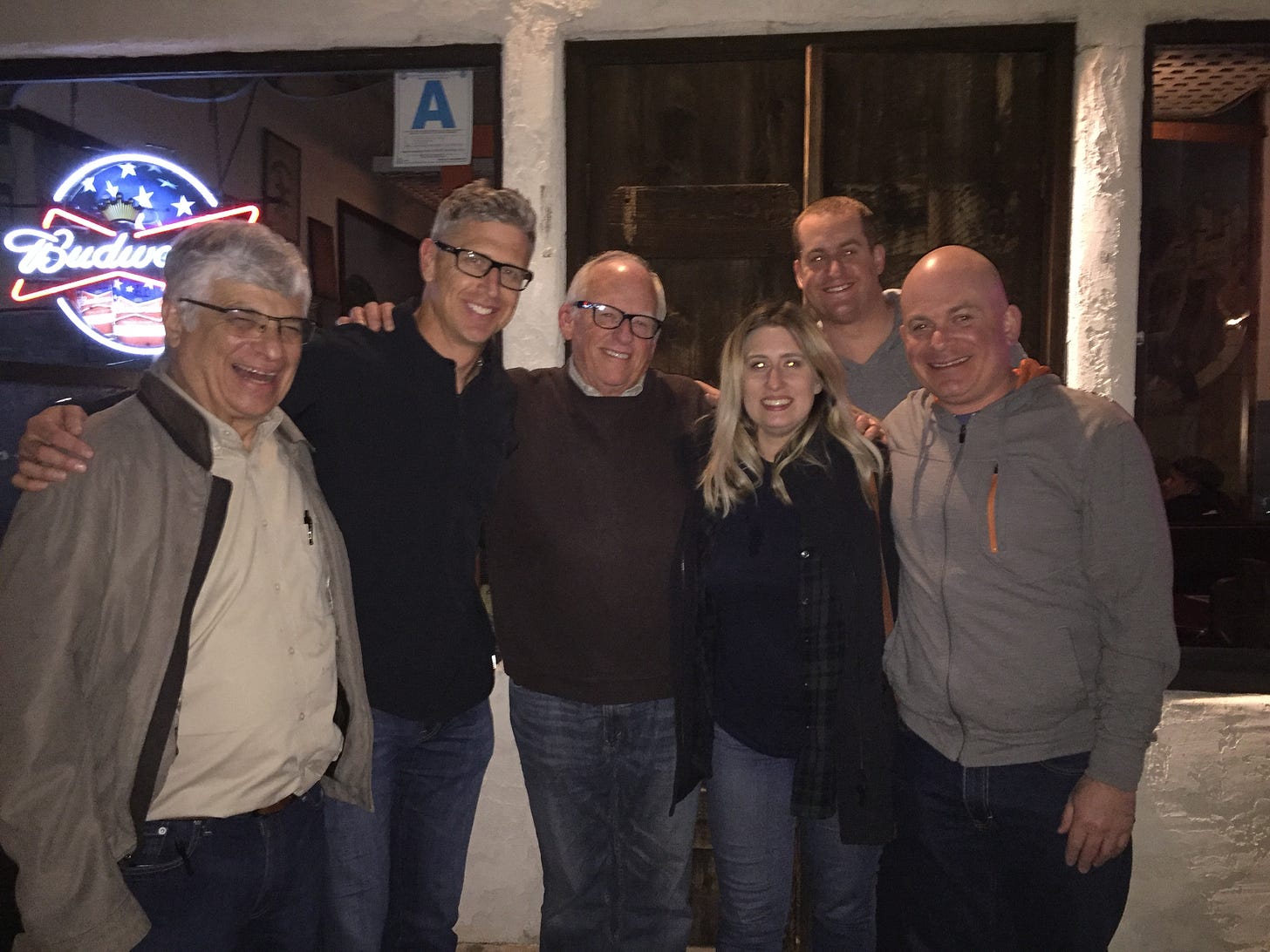Barry Axelrod, a gentleman whose wide-reaching professional impact was complemented by the depth and warmth of his personal relationships, passed away unexpectedly at his home last Thursday at the age of 77. I was proud to call Barry a friend.
WTP readers may remember last summer when we shared the story of a young Barry Axelrod receiving a baseball from Dick Smith, infielder for the Hollywood Stars, in the late 1950s. Looking back, I can’t remember another time when he and I talked about the professional game so innocently. Far away from contract negotations, in-game strategy, and trade evaluations, there was a young boy falling in love with the game that he’d positively influence.
At the time, I remember being concerned that the story was too trite to capture Barry’s professional accomplishments appropriately. Now I’m grateful that he shared one of his earliest enduring memories of the game.
Barry and I spoke the morning after the Dodgers and Padres opened the 2024 season in Seoul. The game turned on a wild play in which a batted ball busted through the webbing of the glove of San Diego first baseman Jake Cronenworth. For longtime Padres fans — and Barry, a season ticket holder for years, counted himself as one — it looked like a sign of another long year. With a touch of cynicism, we analyzed hitting approaches and debated the manager's decisions. Both a little punchy after waking up for the 3:05 am first pitch, we rehashed plays and missed opportunities like it was Game 7 of the World Series. After a while, I was nearing my destination and needed to wrap up the call. “We’ve got 161 more of these this season, Barr,” I reminded him. We both chuckled.
I first came to know Barry about 20 years ago, when his clients included future Hall of Famers Craig Biggio and Jeff Bagwell, as well as Padres Phil Nevin and Jake Peavy. He and Kevin Towers were best friends; their negotiations — during vacations to Mexico, while driving to industry meetings together, or between flights of wine at Napa Valley estates — were appreciated by others in the industry because their integrity superseded any potential conflicts of interest. They enjoyed a rare dynamic.
Following the 2012 season, Barry decertified from the union and joined us in Arizona as a special assistant to KT. He was excited to experience Major League Baseball from a different perspective. Between his affable demeanor and decades of wisdom, he quickly became a de facto special assistant to everyone within the organization. I think it was the role he had hoped for. His counsel was always appreciated. In fact, his presence was valued so much that he had to resign three times before the D-backs finally let him go.
After our time together in Arizona, most of our conversations centered around baseball, family, and the next time we'd get together for dinner or a few drinks. Always, though, he imparted his knowledge from a lifetime in and around professional sports and entertainment.
I came to appreciate the variety of skills and traits that set Barry apart. He calmly handled damage control — and Lord knows he had clients who gave him plenty of reps with that! — and navigating difficult situations. Barry was my emotional navigator through Kevin Towers’ illness and passing. As KT battled a rare form of cancer, Barry was often by his side. That’s when Barry and I began speaking regularly. After a couple months, it became obvious that he was serving as the liaison between the doctors and many friends of KT. He was also protecting Kevin’s wife, Kelley, from the burden of such conversations.
Barry was the narrator of that tragic journey, and, in retrospect, I admire how he approached it with positivity and optimism. It was a choice; Barry chose hope. Barry believed in humanity.
Along the way, he shared stories of loss. He was the agent to Darryl Kile, the three-time All-Star who passed away in his sleep at the Cardinals’ team hotel in Chicago in 2002. Barry found comfort that those in Kile’s life grew closer after the pitcher’s death. Existing relationships were strengthened and new friendships formed. I came to learn that part of the legacy of a beloved individual is that when he passes, his friends and loved ones forge new bonds.
I sometimes wondered how he created the space he needed to grieve. But carrying the weight was part of how he processed loss. It wasn’t merely distraction or a way to avoid the solitude; Barry represented his friends who could no longer represent themselves. He lost best friends. He lost many close to him far too young. Still, he celebrated life. He adored his granddaughters and his children. His professional relationships were not transactional. His clients became family, and he was family to them. His counsel was boundless.
Indeed, Barry and I became closer than ever in the six years after KT’s passing. Without ever saying as much, I think we helped each other fill some of the void for each other. I know he did for me.
When I was with Barry, I felt a comfort that made me believe anything was possible. I already miss my friend.





Ryan, what a beautiful tribute. So sorry for your loss.